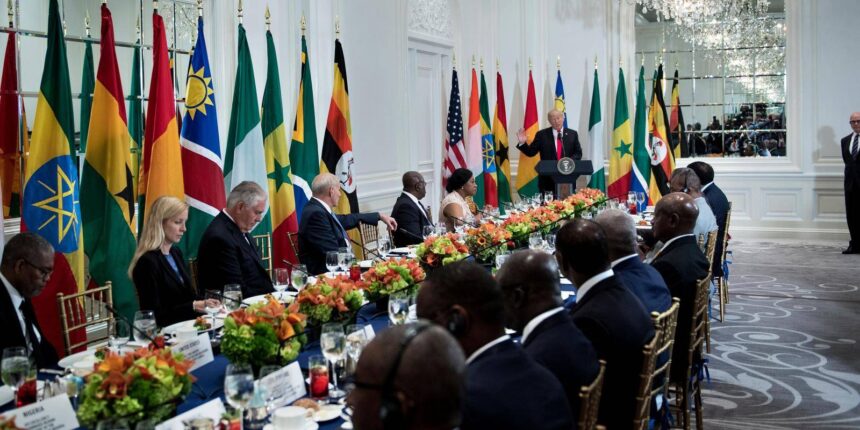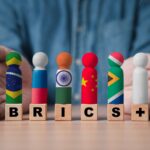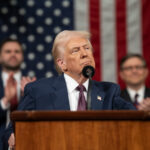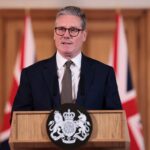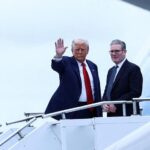On July 9, 2025, Donald Trump hosted a working lunch at the White House with leaders from Liberia, Senegal, Gabon, Mauritania, and Guinea‑Bissau a strategic session signaling a shift in U.S. policy from foreign aid to trade and investment in Africa
Why This Luncheon Matters
- From Aid to Investment:
Trump emphasized that U.S. assistance would now focus on commercial partnerships, marking a break from decade-long aid programs. He pushed the idea that true development comes through economic engagement, not charity. - Resource-Rich Partnerships:
The five nations invited are rich in minerals—like manganese, lithium, and oil. The U.S. International Development Finance Corporation (DFC) has already committed to projects like Gabon’s Banio potash mine, highlighting the economic motives behind diplomacy. - Countering Global Rivals:
This lunch follows noticeable aid cuts and rising U.S. tariffs. It serves as a pivot away from dependency and toward strategic competition, particularly against China’s expanding Belt and Road footprint in Africa - Migration and Security Deals:
Discussions reportedly included requests for African nations to accept U.S. deportees—nudging migration cooperation into the mix alongside trade
Strategic Significance
- Changing Diplomatic Tactics: Trump’s selective guest list and his transactional approach—“deal-first” diplomacy—reflect a business-minded strategy, deviating from traditional aid-based models.
- Pushback from African Spaces: The exclusion of Ghana, Nigeria, South Africa, and Ethiopia raised eyebrows. Some African officials openly criticized the move as too strategic and one-sided.
- Future Agenda: The lunch is the kickoff to a broader two-day summit and hints at a larger U.S.–Africa summit in September during the UN assembly, signaling ongoing engagement.
What to Watch
- Will DFC’s investments (like in Gabon’s potash mine) scale up?
- Can the U.S. balance trade ambitions with controversial tariffs and visa policies?
- How will participating African leaders respond domestically to this shift toward economic diplomacy?

